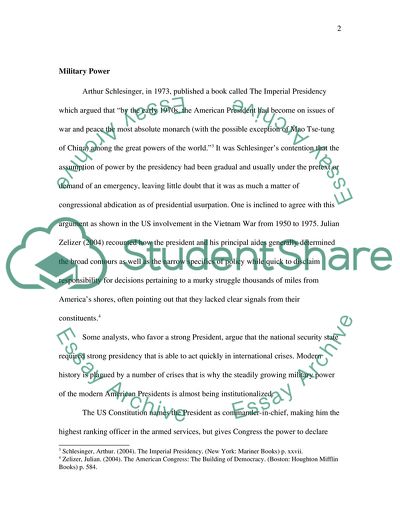Cite this document
(A Presidential form of Government Term Paper Example | Topics and Well Written Essays - 2500 words, n.d.)
A Presidential form of Government Term Paper Example | Topics and Well Written Essays - 2500 words. https://studentshare.org/politics/1713386-do-modern-american-presidents-have-too-much-power
A Presidential form of Government Term Paper Example | Topics and Well Written Essays - 2500 words. https://studentshare.org/politics/1713386-do-modern-american-presidents-have-too-much-power
(A Presidential Form of Government Term Paper Example | Topics and Well Written Essays - 2500 Words)
A Presidential Form of Government Term Paper Example | Topics and Well Written Essays - 2500 Words. https://studentshare.org/politics/1713386-do-modern-american-presidents-have-too-much-power.
A Presidential Form of Government Term Paper Example | Topics and Well Written Essays - 2500 Words. https://studentshare.org/politics/1713386-do-modern-american-presidents-have-too-much-power.
“A Presidential Form of Government Term Paper Example | Topics and Well Written Essays - 2500 Words”. https://studentshare.org/politics/1713386-do-modern-american-presidents-have-too-much-power.


